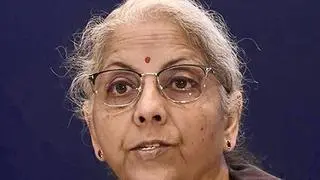If the finished goods are exempt from excise duty, then the excise duty paid on inputs used in manufacturing such finished goods does not qualify for CENVAT i.e. input credit. This is the well-known caveat contained in the Central excise law while allowing input credit.
But what happens when the finished goods and fertilizer is exempt from excise duty, but power is not, and such power is produced out of Low Sulphur Heavy Stock (LSHS), as it happened in Commissioner of Central Excise, Vadodara v. Gujarat Narmada Valley Fertilizers Company Ltd.
The steam generated by burning LSHS is utilised to generate electricity for the manufacture of fertilizer which is exempt from excise duty.
According to the Assessee, it is entitled to claim CENVAT credit on the input, that is, LSHS even though fertilizer is exempt from excise duty on the ground that the intermediary commodity produced by it, power is not exempt from excise duty.
This view was hotly contested by the Revenue before the division bench of the Apex Court which thought it fit to refer the matter to a larger bench and hence placed the matter before the Chief Justice for constitution of a larger bench.
(The author is a New Delhi-based chartered accountant)







Comments
Comments have to be in English, and in full sentences. They cannot be abusive or personal. Please abide by our community guidelines for posting your comments.
We have migrated to a new commenting platform. If you are already a registered user of TheHindu Businessline and logged in, you may continue to engage with our articles. If you do not have an account please register and login to post comments. Users can access their older comments by logging into their accounts on Vuukle.